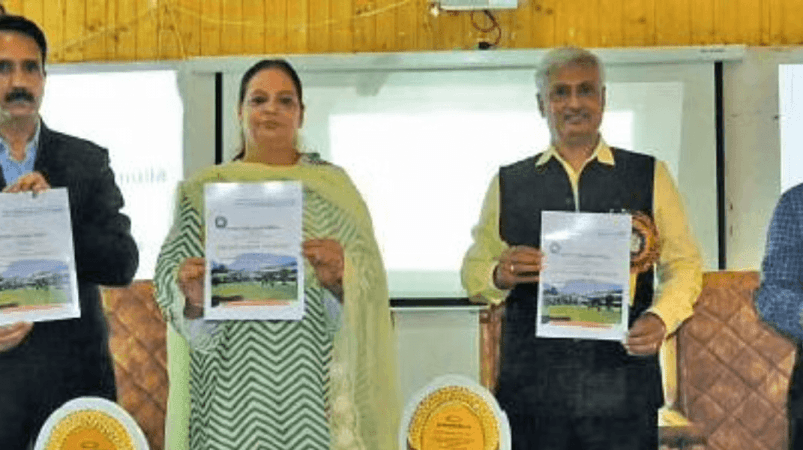Emphasizing on giving adequate autonomy to the colleges to take academic decisions on their own, former chairman of the National Institute of Open Schooling (NIOS) Prof Chandra Bhushan Sharma said that autonomy is the backbone of education, particularly in higher education.
While delivering a keynote address during a two-day national conference on 'Challenges and Reforms of Institutional Autonomy in light of National Education Policy (NEP)-2020' organized by the Government Degree College (GDC), Baramulla, Prof Sharma admitted higher educational institutions do not have the required autonomy.

"It must be accepted that our institutions do not have the level of autonomy that academic institutions require to generate new knowledge through autonomy which academia professes to serve the society and humanity," he admitted.
Prof Sharma, however, assured that by 2040, all the deserving colleges shall be granted autonomy, forty percent of which is already done. He said that it's important for colleges to run autonomously both in academics and institutions so that students can choose their own combinations of subjects and academicians can framework their own curriculum.

Prof Sharma who is also one of the authors of the NEP document said autonomy had been mostly misunderstood.
"Autonomy can be of the institutions, the academic administrators, the classroom teachers, and also autonomy of the learners," he said. He said that the NEP-2020 had tried to handle this issue from the Indian perspective.
"Institutional autonomy is supreme. Radhakrishnan Commission has explained institutional autonomy in its report, which will become a reality after the implementation of the NEP (as mentioned in Chapter 19 of NEP) and the repealing of the acts of various regulatory authorities which have been created in the 50 years or so (as mentioned in Chapter 18 of NEP 2020)," he said.
Speakers highlight challenges in institutional autonomy
Prof. (Dr) Yasmeen Ashai, Director Colleges, Higher Education Department, Union Territory of J&K, said that there is a need to develop multi-disciplinary institutions and multi-disciplinary courses so that there is learning autonomy among the students. She added that there should be an institutional development plan, for achieving academic excellence where colleges can frame their curriculum themselves.
The speakers at a conference highlighted the challenges and reforms of institutional autonomy noting that college autonomy was the finest attraction brought in by the NEP.
The speakers said that the subordination of the colleges to the universities had adversely impacted the colleges in deciding on their academic freedom over the past many years.
Principal GDC Baramulla, Prof Farooq Ahmad Rather in his welcome address spoke about autonomy as an essential paradigm of NEP-2020.
He said under the NEP-2020 scheme, UGC assures an autonomous college to be self-governing, and self-supporting although under the accountable supervision of the government and the affiliating university.
"The autonomous college though initially fully government aided needs to shift towards partially aided and finally to unaided and self-financing institute," he said.
He highlighted the achievements of the college and its limitations. "We are on our path to achieving excellence. Yet, we need support from the administration to achieve our goals," he said.
















